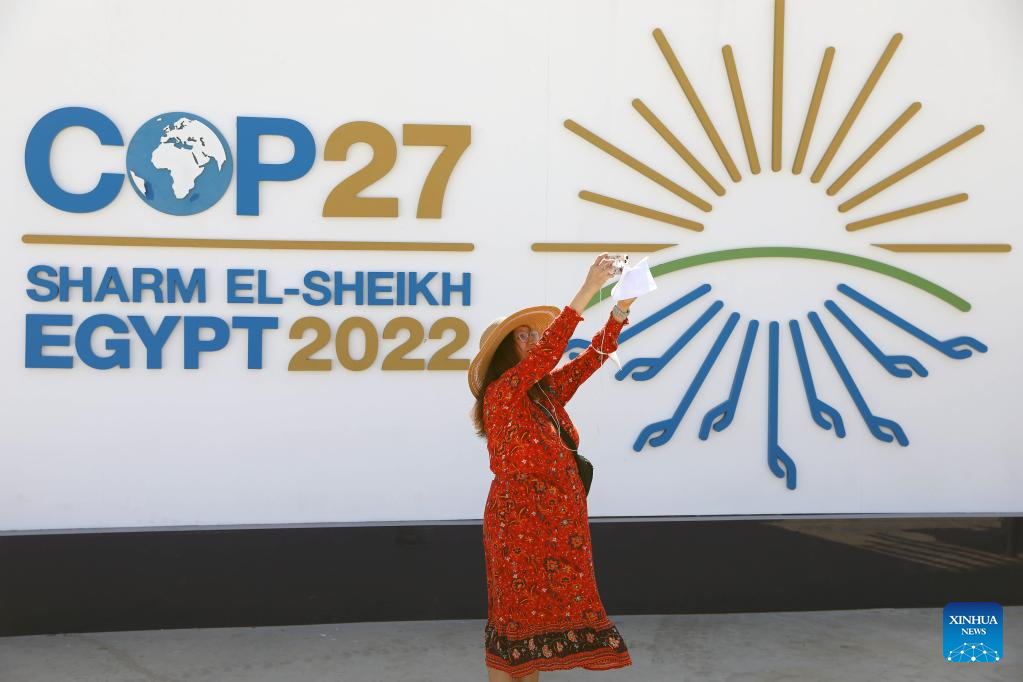
A woman takes pictures in front of a display board of the 27th Conference of the Parties of the United Nations Framework Convention on Climate Change (COP27) in Sharm El-Sheikh, Egypt, Nov 6, 2022. [Photo/Xinhua]
This is an editorial from China Daily.
From the conflict in Ukraine to the midterm elections in the United States, there are plenty of ongoing and impending events to distract countries and their leaders from this year's United Nations climate change conference now in session in Egypt.
But the evidence of climate change's devastating impacts is accumulating, and without immediate and deep emissions reductions across all sectors and regions, it will be impossible to keep warming below 2 C, never mind the hoped-for 1.5 C. As UN Secretary-General Antonio Guterres warned nations at the opening of the meeting, known as COP 27, we are "on a highway to climate hell with our foot on the accelerator". Solidarity and collective action are pressing imperatives.
The highway to hell is littered with broken promises and these have become outstanding obstacles to a collective response to climate change.
There have been too many hope-raising pledges made in the past by the developed countries that have not been met, not least because they are not the countries most affected by climate change. As the UN body for assessing the science related to climate change notes in a summary for policymakers, across sectors and regions, it is the most vulnerable people and ecosystems that are bearing the brunt of climate change, with Small Island States disproportionately affected the most.
It is thus inspiring to learn that international leaders agreed on the first day of the meeting in Sharm El-Sheikh to put loss and damage on the agenda. This is a historic breakthrough for global climate negotiations, which may pave the way for badly needed compromises between major contributors to climate change and its most vulnerable victims, which will in turn facilitate joint actions.
An outstanding obstacle to a collective response to climate change has been the dispute over loss and damage, a divisive topic since it was first raised by a small group of island nations in 1991. As Seychelles President Wavel John Charles Ramkalawan said, "Our contribution to the destruction of the planet is minimal. Yet we suffer the most."
A dozen years back, the richest, most polluting countries recognized they had an obligation to compensate. Developed countries such as Australia, Canada, Japan, the United Kingdom and the United States committed to contributing $100 billion a year by 2020 (and through 2025) to poor countries for their mitigation and adaptation projects. Last year at COP 26 in Glasgow, the developed countries agreed to at least double funding for adoption by 2025 from 2019 levels, to around $40 billion per year. None of these goals has been met.
The wealthy countries have been dragging their feet on honoring their promises to help developing countries mitigate greenhouse gas emissions and adapt to new energy sources, technologically and financially.
UK Prime Minister Rishi Sunak was correct in saying, "The question today is: can we summon the collective will to deliver on those promises?"
A meaningful collective response is imperative. The developed nations can no longer just pay lip service to the issue.

 中文
中文



